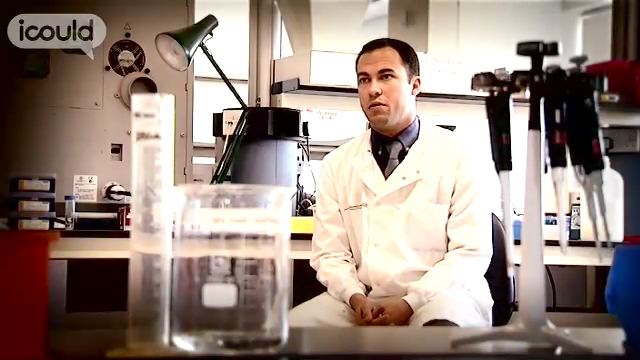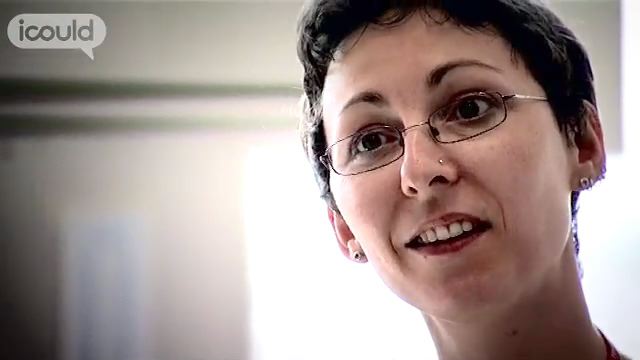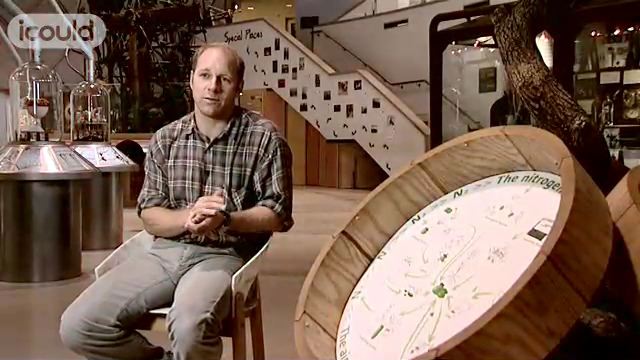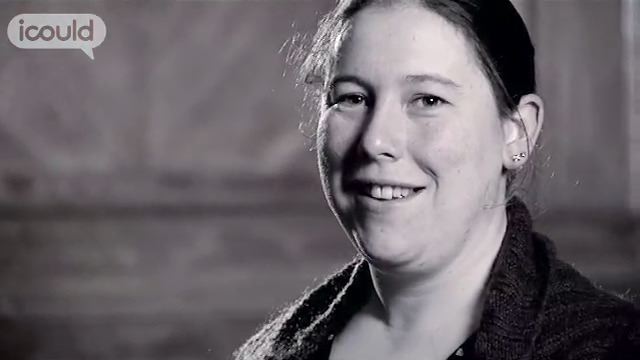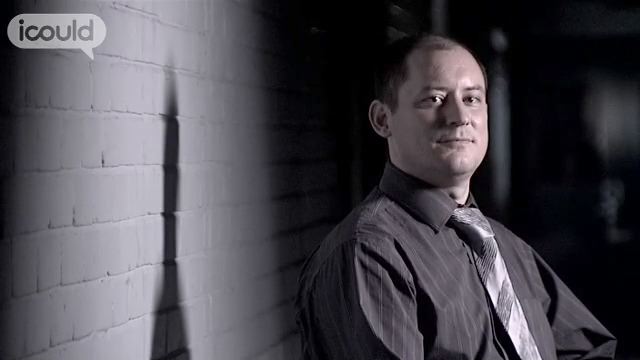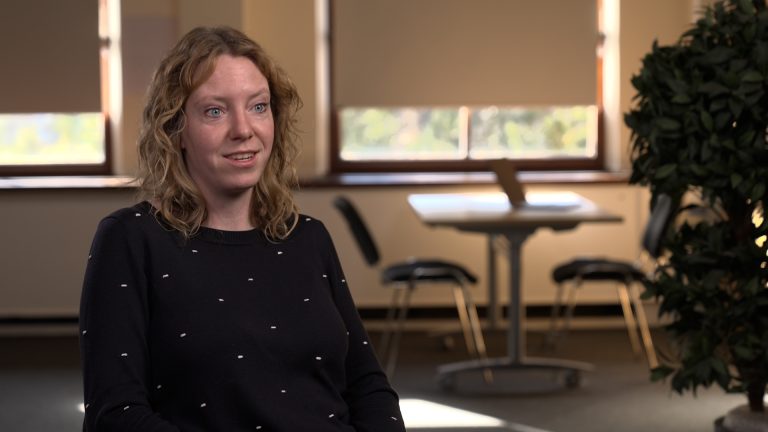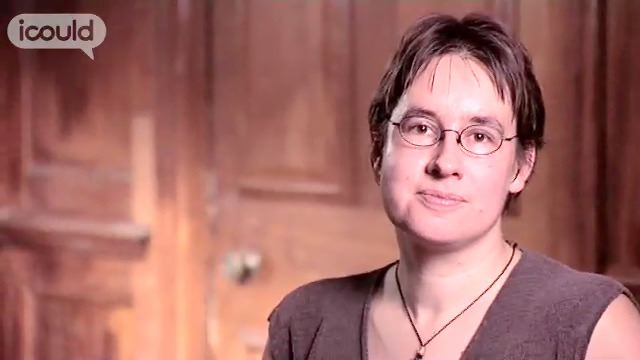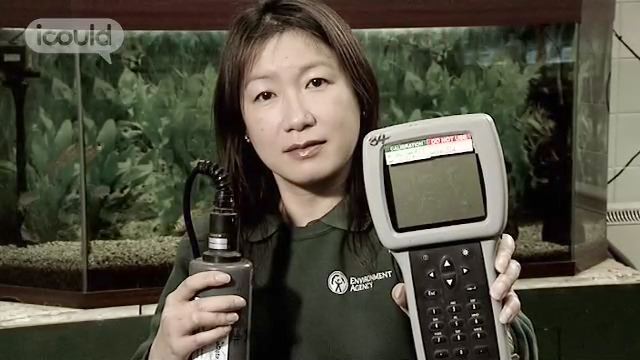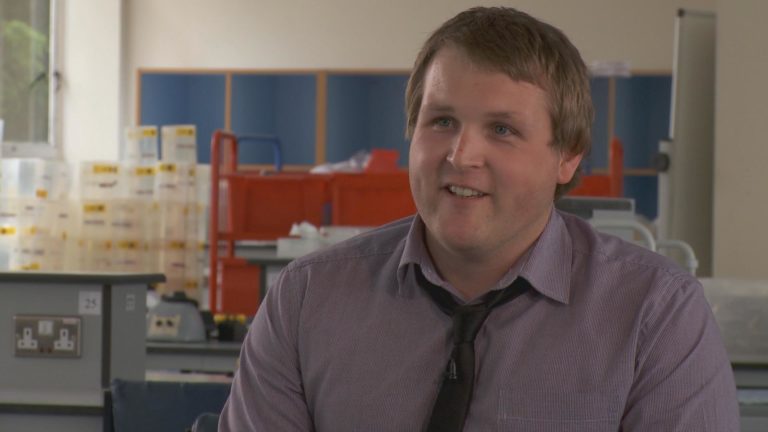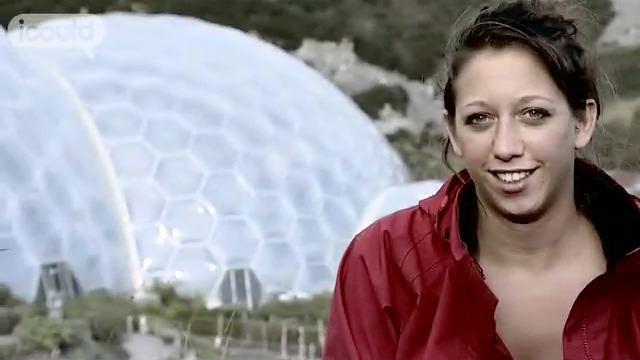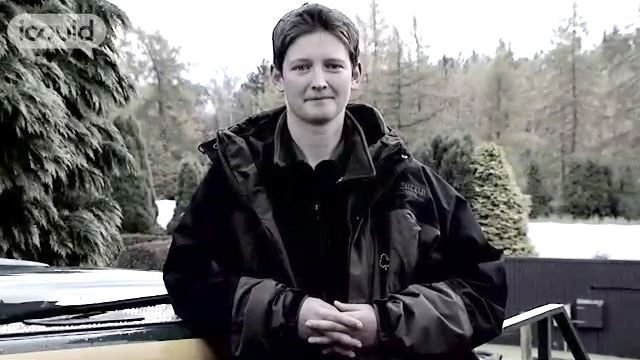Entomologist
Forestry Commission
Daegan I
00:00:02 I’m Daegan I. I work for Forest Research, and agency of the Forestry Commission and I’m a research entomologist. An entomologist is someone who studies insects. I specialise on beetles. At the moment I’m using insects to examine how climate change will affect life histories of organisms in our forests.
00:00:27 When I was very young I wanted to be an explorer, I think. I wanted to sort of slash my way through the rain forests and I think find new animals and look at fossils and the natural world always excited me. I started work in the Natural History Museum as part of my first degree in fact. I did a sandwich year. I spent a year working with professionals on a subject which at that time I didn’t realise was quite as interesting as I now find it, and when I came back to my final year, I had a renewed enthusiasm for why I was doing my degree. I got a sense of what was actually out there that might appeal to me, that there was work there that I’d be interested in.
00:01:20 After my first degree, I did an MSC in bio-diversity and taxonomy and then I did a PhD after that which was basically becoming more and more specialised to the point where you wonder if you’re actually employable anymore because you know a great deal about a very small subject.
00:01:42 After my PhD, I fairly naturally did something called a Postdoc. It’s a postdoctoral contract and I was funded for three years. But the worry at the end of that is you have to go out and find more work. You’re only employed for as long as your money lasts and I had a new son and I wanted to sort of settle down and not worry about where my next pay cheque was coming from, but I was determined to stay in science. So, the job at the Forestry Commission came up, the Forestry Research job and I saw it in the New Scientist, I applied and fortunately found that my skills in dung beetles did have some application in the UK.
00:02:33 I’ve been very fortunate to have travelled to a lot of different places in the world. I worked on tropical insects for some years and I travelled to South Africa, Ecuador, Chile, Madagascar, all to chase these insects. One of the most inspirational events in my life perhaps is…was my first opportunity to work in the Tropics. To work in a rain forest surrounded by this incredible diversity of plants and insects and animals of which I understood just a tiny part.
00:03:13 But that was enough to sort of feel at home there and be really inspired that what I was doing was somehow linked to greater things. Not sort of working in isolation but this is what it was all about. Having a link with the natural world for someone who’s interested in natural history, very important.
00:03:35 I’ve been very fortunate to end up working as an entomologist. I feel privileged to be able to work with the natural world. I’d never have been able to sit behind a desk for very long. To be actually out there collecting these organisms, looking at them in the wild, to have travelled to these fantastic places to collect and understand them has been, you know, a dream come true. ENDS
Deagan Inward is an Entomologist. He says “I feel priviliged to be able to work with the natural world. To be out there collecting these organisms, looking at them in the wild, to have travelled to these fantastic places to collect and understand them has been a dream come true.”
More information about Biological scientists
The UK average salary is £29,813
There are 37.5 hours in the average working week
The UK workforce is 47% female and 53% male
Future employment
- Studies the physical form, structure, composition and function of living organisms
- Researches the effects of internal and external environmental factors on the life processes and other functions of living organisms
- Observes the structure of communities of organisms in the laboratory and in their natural environment
- Advises farmers, medical staff and others, on the nature of field crops, livestock and produce and on the treatment and prevention of disease
- Monitors the distribution, presence and behaviour of plants, animals and aquatic life, and performs other scientific tasks related to conservation not performed by Job holders in MINOR GROUP 215: Conservation and Environment Professionals
